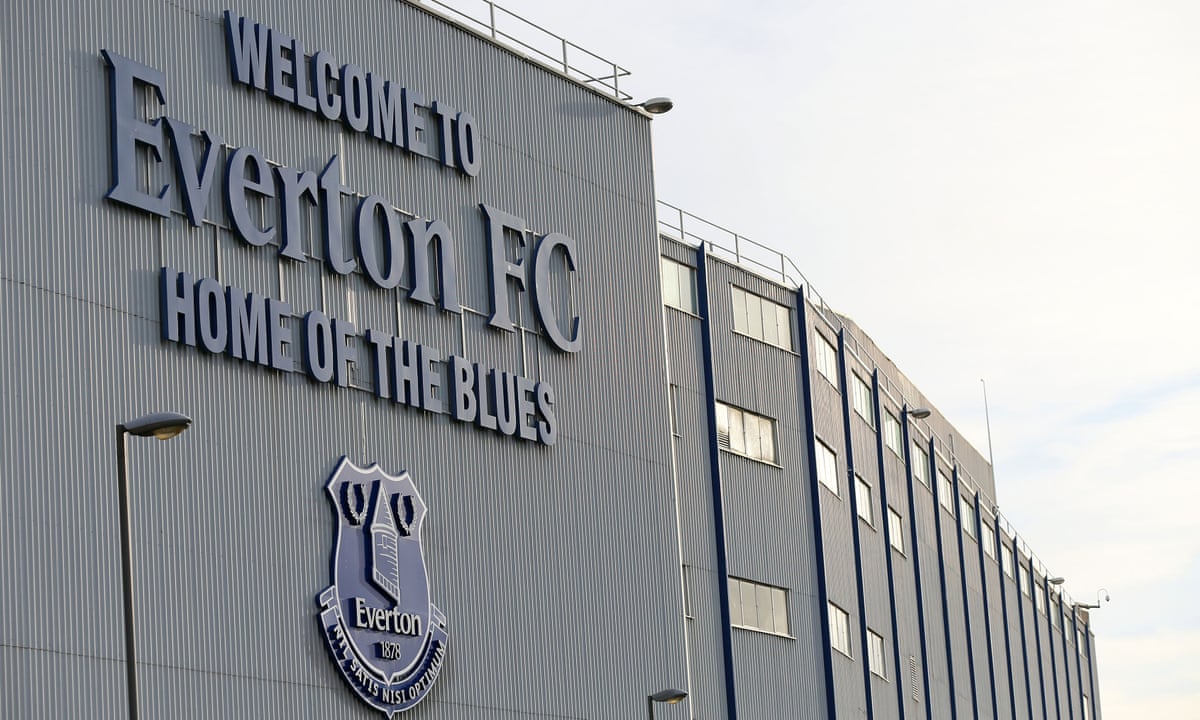Everton have joined a long list of clubs to be the subject of scrutiny by American investors, says David Conn

The news that Evertons long, public search for investment is attracting interest from two US investors, following Crystal Palaces sale of a 36% stake and Bournemouth a 25% shareholding, extends the incongruous spectacle of English football clubs becoming owned in a country still generally oblivious to soccer. When Malcolm Glazer and his six children started this historic change with their buy-up 10 years ago of that most storied of clubs, Manchester United, they declared that Joel Glazer was an avid fan.
Now that investors are checking out Everton following US purchases at Arsenal, Liverpool, Aston Villa, Sunderland, Bournemouth and Palace seven of the 20 current Premier League clubs there is little effort to suggest the major motivator does not come down to money. The EPL, as the Premier League is known and marketed in the US a key reason why the Football League is rebranding to the EFL – is booming and the latest £5.136bn paid by Sky and BT for the 201619 UK live rights has alerted more potential buyers across the Atlantic.
Whereas Chelseas 2003 purchase by Roman Abramovich and the 2008 acquisition of Manchester City by Sheikh Mansour of Abu Dhabi seemed to signal English football clubs would be owned by billionaires as trophy assets, there are only so many sheikhs and oligarchs and they are anyway running their clubs to be break-even businesses. As clubs have been sold,, for a mix of reasons English shareholders wanting to cash in, grounds and squads needing investment principal interest has come from the US, where there are acquisitive financiers and a culture of buying sports teams as investments.
Here for a century, footballs stated culture, regulated by Football Association rules, was that shareholders and directors should be involved to serve clubs, not make money for themselves, but the FA surrendered that tradition from the 80s, just as the money was becoming huge.
Former English owners of these sporting havens, which we still call clubs, then made fortunes selling shares they held for decades. Martin Edwards and family banked £91m selling United and David Moores £90m for the heirloom of his Liverpool stake; Doug Ellis earned £20m for his Villa shares, with longstanding Arsenal owners greatly cashing in from selling to Stan Kroenke, with David Dein banking £75m from Alisher Usmanov.
The US owners aim is to replicate the medium-to-long term holding of US sports franchises, making money on the value of the clubs increasing, from TV, sponsorships, ticket prices and supporter-consumerism. Sports teams are cash businesses too, so owners can also make money as they go along; Arsenal now pay Kroenkes company, KSE, £3m annually for services described as consultancy and advice.
The Glazers approach has famously been the most raw: they put up only £272m of their own money out of £790m paid for United, then loaded their £518m borrowings on to the club to repay. This leveraged takeover, orchestrated by Ed Woodward when he was at the merchant bank JP Morgan, has since cost the club more than £700m in interest and fees, and the debt is still £411m gross.
Woodward, since appointed by the family to run the actual football club, is still struggling with the post-Sir Alex Ferguson succession but the Glazers have made fortunes nevertheless. They made £75m selling shares when they re-registered the club in the Cayman Islands and floated it on the New York stock exchange in 2012, another $200m (£134m) from a sale in August 2014, then Edward Glazer made around £29m that December selling more. This year United announced an annual dividend which adds up to £15m a year for the family.
They remain the 90% owner of United, valued at $3.1bn in May by the US magazine Forbes, which said: No team on the planet has figured out how to make money from its brand like the Red Devils.
The increase in Premier League TV deals, incrementally growing awareness of soccer in the US, and the leagues cost controls aimed at stemming wages, have prompted the latest interest yet further takeovers have been slow. The Bournemouth investment, whose details the club has not disclosed, and the Crystal Palace deal, in which 18% of new shares were issued each to Joshua Harris and David Blitzer for an initial £50m, according to Palace, were the first to complete since Shahid Khan bought Fulham in 2013. West Bromwich Albion, Villa and Everton have been publicly for sale, and others open to offers, yet not concluded deals.
Some involved say a key deterrent is relegation, the time-honoured basis of the football pyramid which does not exist in US sports. Khan, relegated with Fulham, Randy Lerner with Villa and Ellis Short at Sunderland, both struggling despite spending millions, are cautionary precedents.
The two currently doing due diligence at Everton, the tech investors John Jay Moores and Charles Noell, previously negotiated with Swansea, before the deal was called off. There the supporters trust owns 21% and was concerned about the change in culture associated with a financially driven US investment.
Richard Scudamore, the Premier Leagues chief executive in whose tenure so many clubs have been sold, has described the Swansea structure as probably ideal. Their trust is a reminder of heartfelt resistance to accepting football clubs as financial investments, that supporters still consider them homes of mutual belonging, to be cherished, not exploited.
